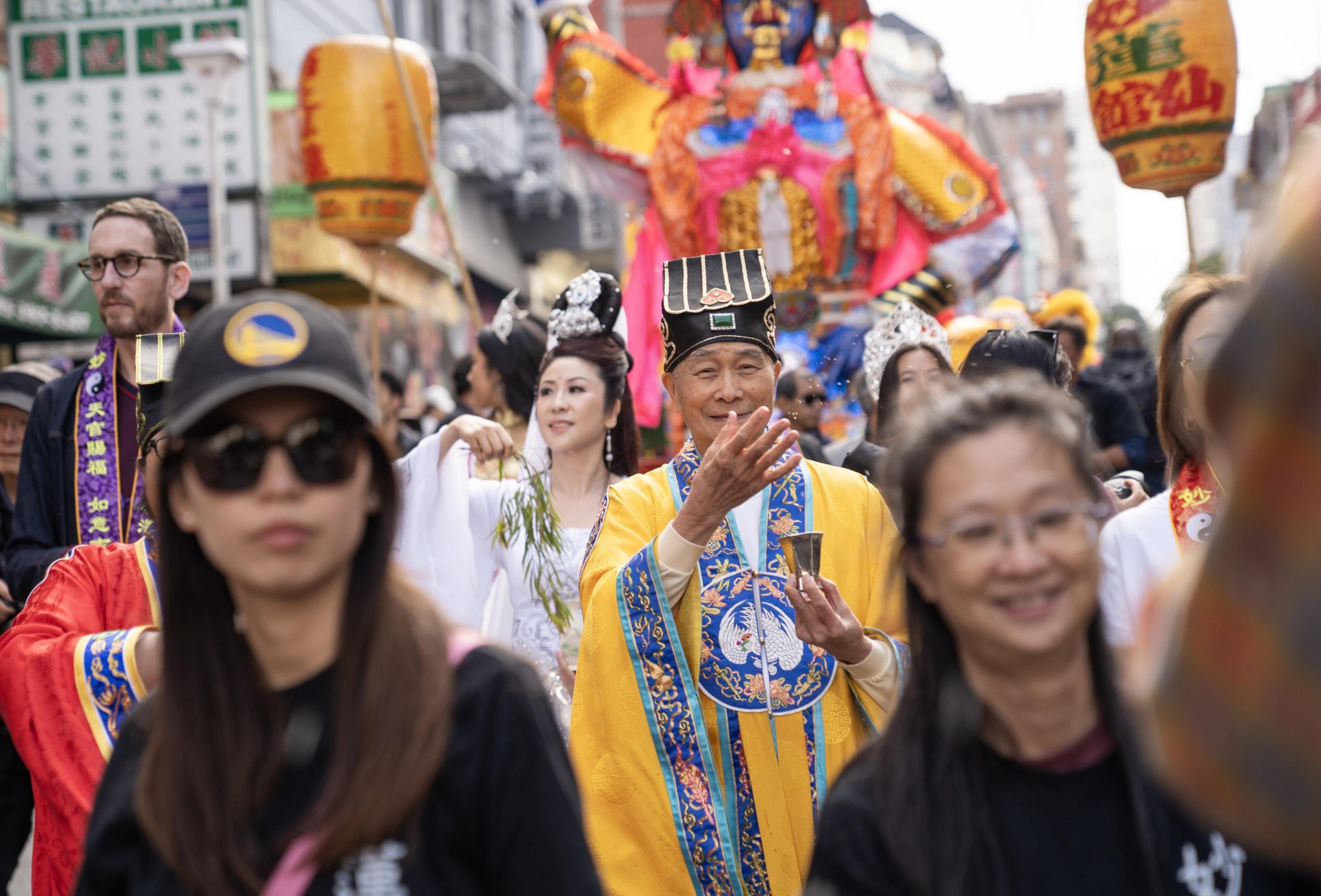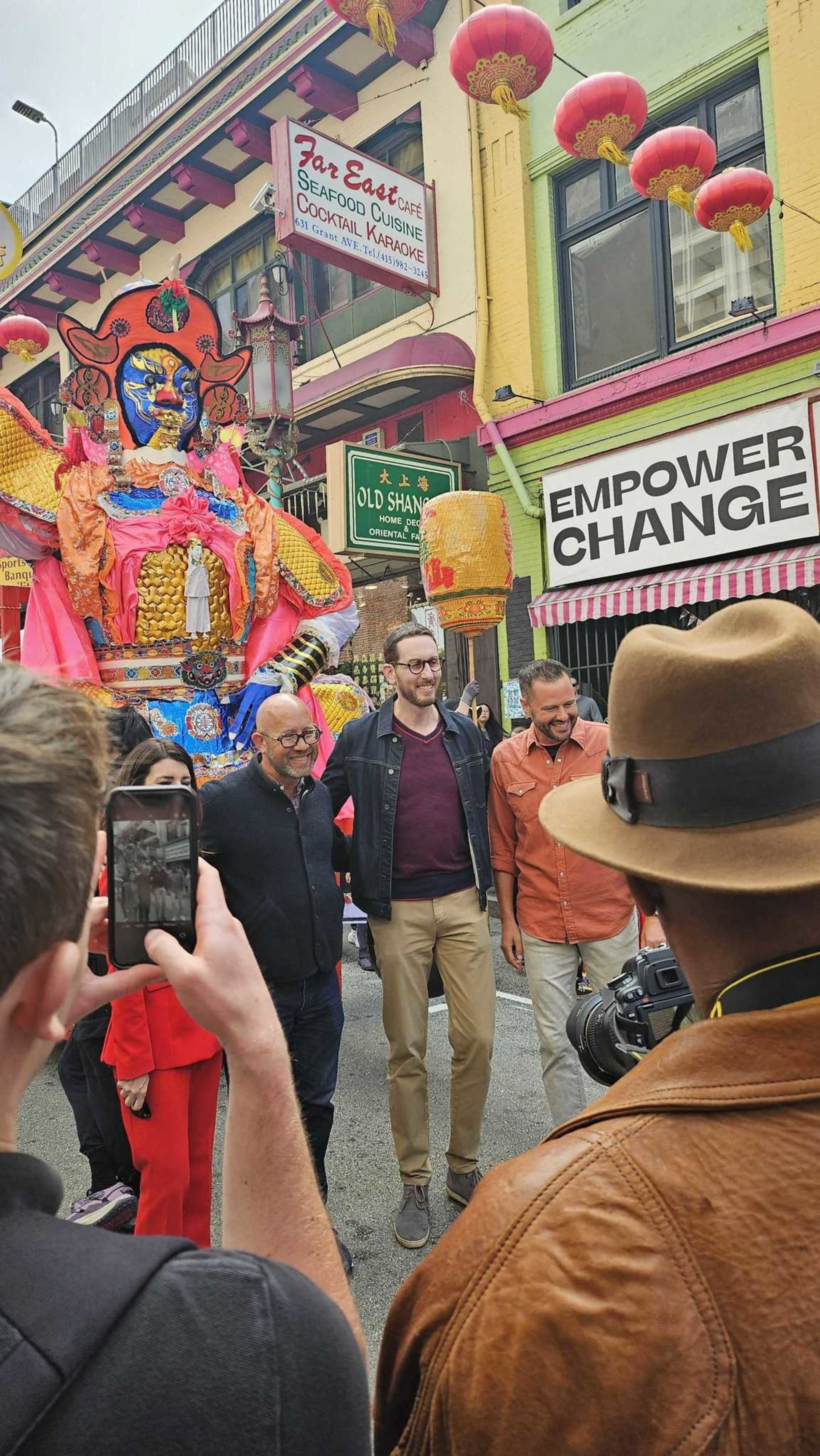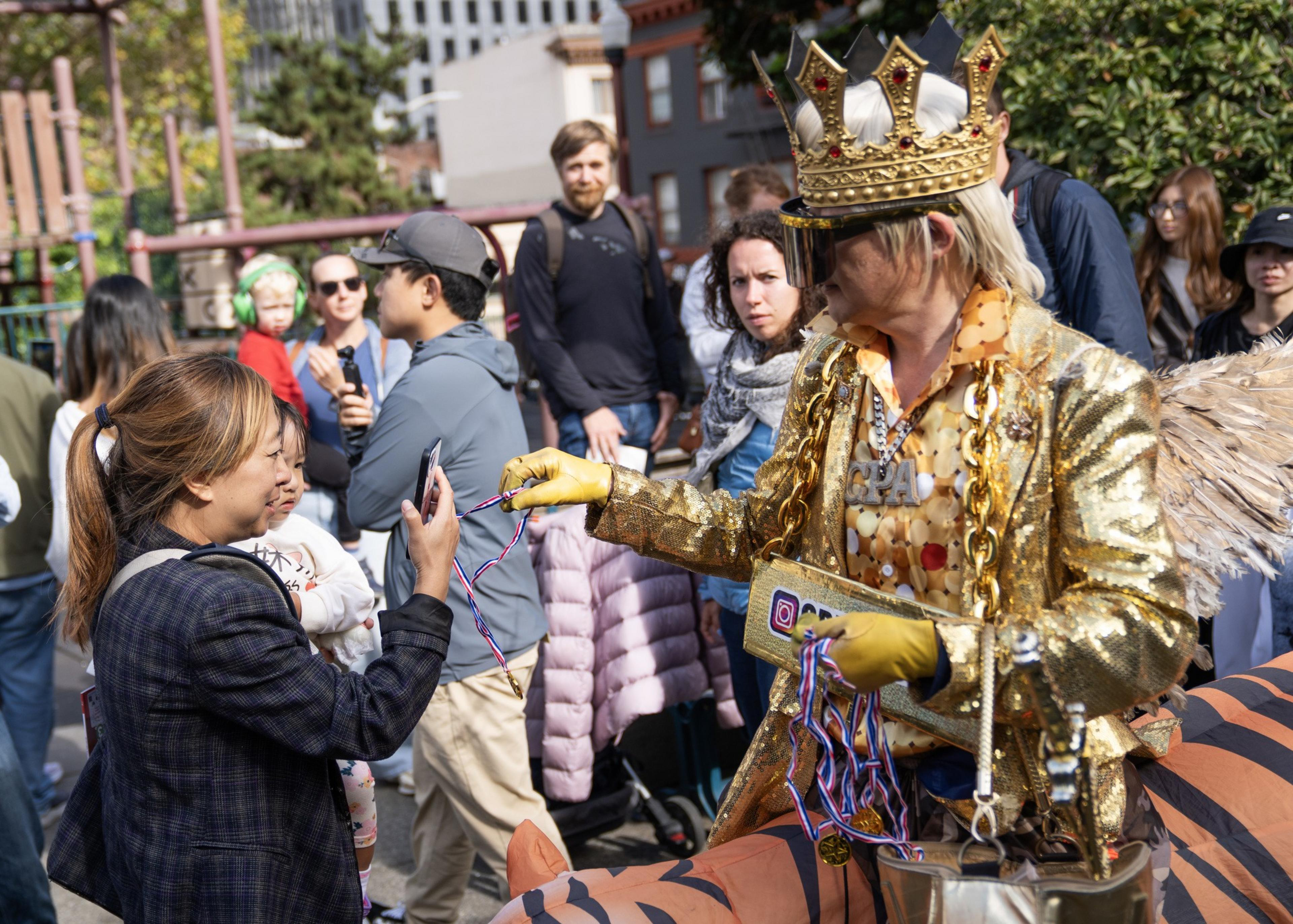San Francisco’s Chinatown transformed into a spectral playground Saturday night, as a 14-foot-tall paper Ghost King marched through the streets in a festival that blended music, art, and ritual.
The event, Hungry Ghost Festival: Demons of Our Times, was not just a modern take on an ancient Chinese spiritual ceremony but a sharp critique of today’s political climate.
Hoi Leung, curator at the Chinese Culture Center and the festival’s organizer, explained that Chinese immigrant communities in California have long carried on this eerie tradition. Today, she said, fusing traditional and contemporary arts can serve as a form of resistance to anti-immigrant narratives.
“The ghosts we once feared now wear new faces,” Leung said. “We bear witness to the rise of sadly time-tested ‘rituals’ of hate — demonizing immigrants, rationalizing terror, and erasing history.”
When asked if she was referring specifically to President Donald Trump as the demon, Leung declined to answer. Naming names, she explained, would narrow the meaning. Instead, she framed the event as being open to interpretation, speaking to political struggles across the world.
Traditionally held on the 15th night of the seventh lunar month, the Ghost Festival marks the time when restless spirits slip out of the underworld. Communities respond with food, fire, and performances to feed the forgotten and guide them home. In pioneer-era California, the tradition helped Chinese immigrants mourn deaths and honor those who never made it across the Pacific.



Chinatown’s version of the Hungry Ghost Festival launched in 2023 as part of a strategy to revitalize the neighborhood after the Covid pandemic. Leung said the festival is the only one of its kind in the nation, and it has grown larger each year. Thousands of people attended, Leung estimated.
The festivities kicked off with a towering effigy crafted in Hong Kong by a traditional paper master, looming over dancers and drummers as it swayed through Chinatown streets in a procession led by the Lotus Tao Culture Association. Another creature, a demon, emerged from a black box surrounded by incense smoke, bowing and dancing before the crowd.



Along Grant Avenue, art installations lit up blocks, while music and performances continued till late at night. On the main stage, the evening stretched from Cantonese opera to Indigenous folk-punk, taiko drumming, and drag performances.
Mohamad Almghrbel from Sacramento got stuck trying to cross Grant as the procession was walking by and ended up with the best view of anyone — with the exception of the local elderly woman standing on her roof overlooking the action.


Festivalgoers dipped in and out of shops, and restaurant and shop workers stood outside their storefronts watching the action. One man jumped with fear as a firecracker went off.
An elderly Chinese woman explained to the crowd the significance of the chopstick stuck to the middle finger of a huge papier-mâché hand that pointed up to the sky.
“If there is something wrong in your life,” she said, “pinch the finger with a chopsticks, and it takes it away.”


At (opens in new tab) the main stage at Portsmouth Square, performances reflected progressive values, including Bay Area singer Ash Bricky delivering the “Indigenous Trans Folk Punk” to an audience of about 100.
Queer Taiko, a group of LGBTQ+ artists of Japanese drumming, took the stage next. Lead performer Kristi Oshiro said taiko drums have been used to drive away evil spirits and summon good fortune.
“So if that’s true,” Oshiro told the cheering crowd, “you’re welcome. Yeah!”


